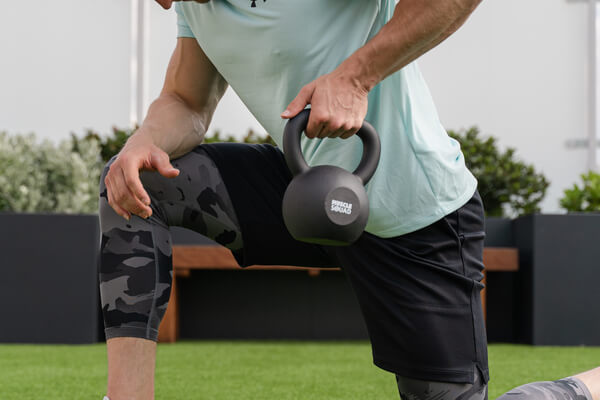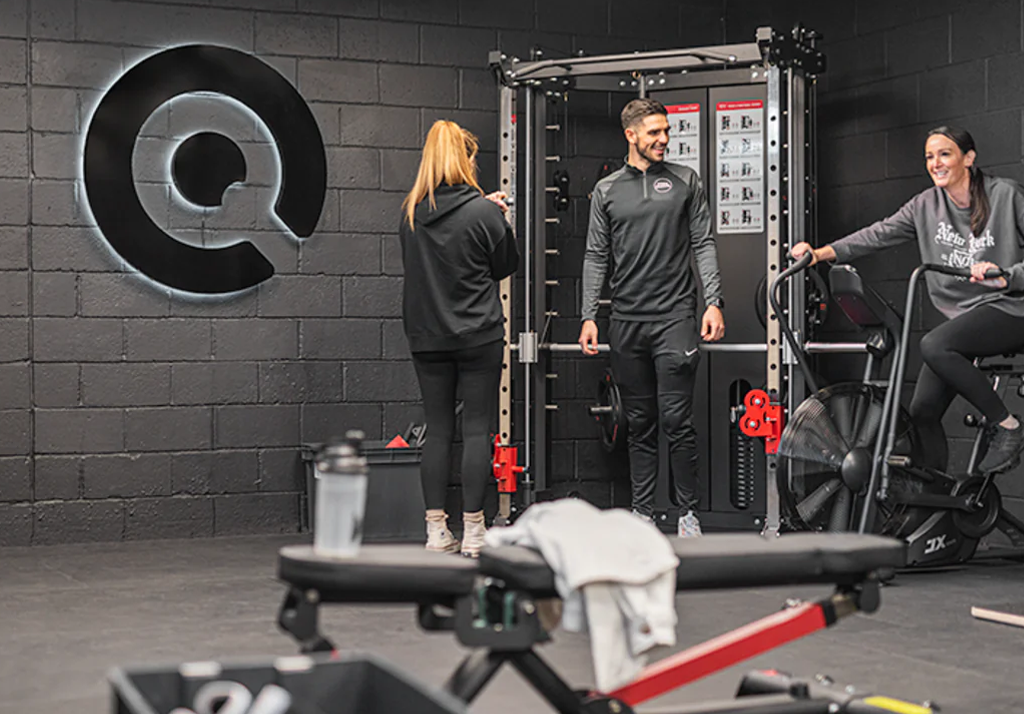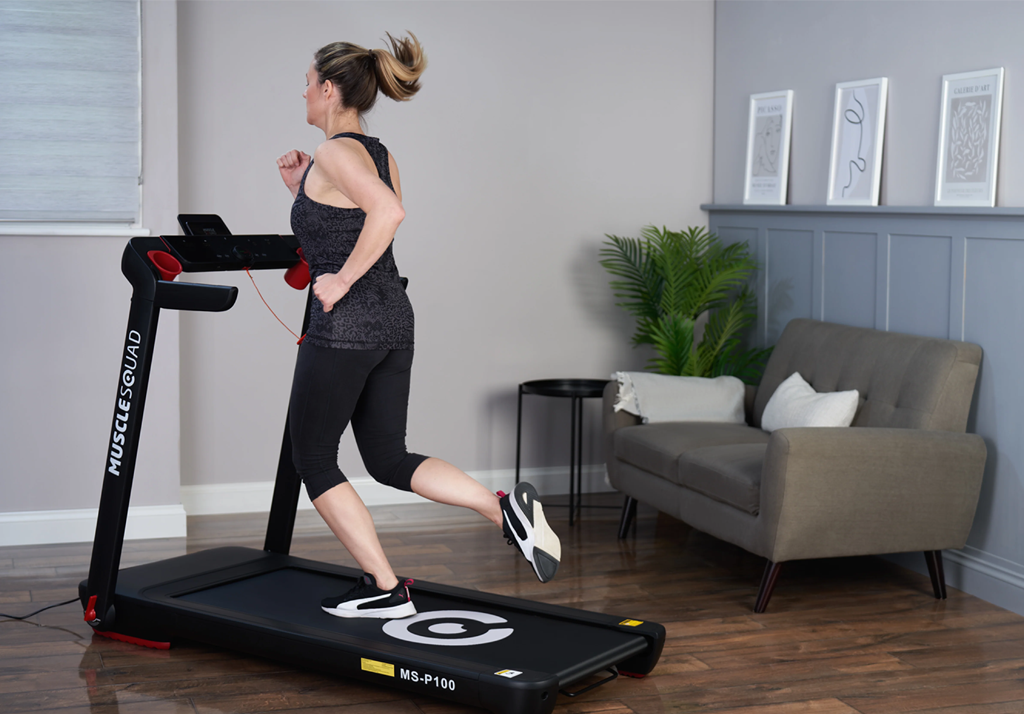Are you new to the gym and looking for a guide to help you get started? This blog covers everything you need to know, from a beginner gym workout plan to nutrition tips, motivation and practical advice to keep you on track and avoid making mistakes when starting out.
Starting at the gym can be overwhelming — figuring out what exercises to do, how often to train and even battling self-doubt as you compare yourself to others. But remember, everyone starts somewhere. The key is to focus on yourself, set realistic goals and enjoy the process of improving both your physical and mental health.
Let’s dive into everything you need to know as a beginner.
What you should remember?
You’re trying to be a better you! Every small step counts, whether it’s lifting heavier weights, running an extra minute or simply showing up to the gym — celebrate your progress.
Not every workout will feel great, and that's okay. Not every workout will feel amazing, and that’s okay. Consistency matters more than perfection.
Do what you enjoy — even if it’s not the most optimal. If you hate running but love resistance training, focus on what you enjoy. The best beginner gym workout plan is one you can stick to in the long-term.
How often should you train?
For beginners, starting with 2-4 days of training per week is ideal. This gives your body enough time to recover while allowing you to build strength and endurance. A 4-day split is a popular choice for those looking to create structure in their gym routine.
Here’s an example of a 4-day split.
Day 1. Upper body — focusing on push movements to target your chest, shoulders and triceps.
Day 2. Lower body — focusing on your legs by training quads, hamstrings, glutes and calves.
Day 3. Rest or light activity — take a walk or a light run.
Day 4. Upper body — focusing on pull movements to target your back, biceps and core muscles.
Day 5. Rest or active recovery — light cardio or stretching. When starting in the gym, you may find your DOMS ache a lot more in the first few weeks, so stretching is optimal to avoid any injuries.
Day 6. Full body — focusing on training all your muscle groups, ensuring that you target more than one muscle in each exercise.
Day 7. Rest or light activity — take a walk or a light run.
This gym workout plan for beginners balances intensity with recovery to help you adapt to new physical demands.
Beginner gym workout plan
When starting focus on mastering basic movements with proper form. Use lighter weights or bodyweight exercises to build a solid foundation. Tracking your workout every session is key to increase the weight and reps each time — progressive overload is important to hit those goals!
Example beginner workout plan.
Day 1 (Upper body)
- Push-ups (bodyweight) - 3 sets until failure
- Arnold shoulder press - 3 sets of 8-10 reps
- Lateral raises - 3 sets of 8-10 reps
- Plank - 3 rounds of 20-30 seconds
Day 2 (Lower body)
- Bodyweight squats - 3 sets of 10-12 reps
- Dumbbell deadlifts - 3 sets of 8-10 reps
- Glute bridges - 3 sets of 12-15 reps
- Standing calf raises - 3 sets of 15-20 reps
Day 4 (Upper body)
- Bent over rows - 3 sets of 8-10 reps
- Lat pulldowns - 3 sets of 8-10 reps
- Cable bicep curls - 3 sets of 10-12 reps
- Russian twists - 3 sets of 20 reps (10 per side)
Day 6 (Full body)
- Smith machine bench press - 3 sets of 8-10 reps
- Machine rows - 3 sets of 8-10 reps
- Reverse flyes - 3 sets of 10-12 reps
- Tricep pushdowns - 3 sets of 10-12 reps
Nutrition
When starting a fitness journey, what you eat is just as important as how you train. A balanced diet fuels your workouts and aids in recovery, helping you achieve your goals more effectively. For some, tracking your calories can be a useful tool to eating well.
Prioritise protein. Protein supports muscle growth and repair. Incorporate lean meats, eggs, fish and low-fat dairy foods into your diet.
Focus on whole foods. Minimise processed foods and fill your plate with fruits, vegetables, whole grains and healthy fats like nuts, seeds and avocados.
Stay hydrated. Water is essential for performance and recovery, so aim to drink at least 2 litres per day — more if you’re working out.
Remember, nutrition is key to healthy living, whether your goal is to lose fat, building muscle or simply maintain a healthy lifestyle.
Motivation
Staying motivated can be one of the biggest challenges when starting out. Here are some tips to keep your momentum going.
Set realistic goals. Break your larger fitness goals into smaller, more manageable steps. Celebrate each milestone, no matter how small.
Find your ‘why’. Whether it’s improving your health, boosting your confidence or gaining strength, knowing why you’re working out can keep you focused.
Use fitness motivation tools. Write down your favourite gym quotes, track your weight or take measurements of your body — seeing how far you’ve come is a powerful motivator.
Get inspired. Follow fitness influencers or read gym motivation stories to remind yourself that progress is possible with persistence.
Additional tips for beginners
- Warm up and cool down. Start every workout with a proper warm-up to increase blood flow and reduce injury risk. Cool down with stretches to aid recovery.
- Listen to your body. It’s normal to feel some soreness as a beginner, but sharp or persistent pain is a sign to take a break or adjust your exercises — ensuring you’re not overdoing it at the gym.
- Be patient. Results take time. Focus on consistency and building sustainable habits instead of quick fixes.
By following this guide, you’ll be well on your way to building confidence, strength and a healthier lifestyle. The gym doesn’t have to feel intimidating — with a solid beginner gym workout plan, proper nutrition and plenty of fitness motivation, you’ll be smashing your goals in no time.
Start today and remember, every rep, every step, every effort counts! 💪

 Jan 22, 2025 - Luke Whitburn
Jan 22, 2025 - Luke Whitburn


Leave a comment: